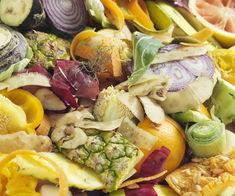


Fresh fruit and vegetables top the list of most wasted food categories in the UK, outranking bread and bakery products, fresh meat, fish and dairy.
“People throw away food for a range of reasons,” said Bronwen Jameson, marketing manager for the Waste & Resources Action Programme’s (WRAP) Love Food Hate Waste (LFHW) campaign. Speaking at a presentation to the Chartered Institute of Marketing’s Food, Drink and Agriculture Group last week, she said: “They either cook or buy too much, or do not use it in time before the use-by date, which is largely the case for fruit and veg. Special offers often tempt people to buy more than they need.”
Wasting food is an unconscious act, according to Jameson. “Ten per cent of us say we throw quite a lot, or a reasonable amount, of food away, but 90 per cent of us describe the amount we throw away as some, a little, hardly any or none.”
On average, each UK household throws away £400 a year in wasted food, amounting to 6.7 million tonnes - or 15mt of CO2 - and equivalent to a third of the food bought for home consumption. Working professionals in the 16-34 age bracket and young families are the worst culprits.
“LFHW, which we launched at Borough Market last November, is our most ambitious campaign to date,” said Mark Barthel, special advisor to WRAP. “There has been a sea change in the way the retail and manufacturing industries are addressing food waste, and we are co-delivering this campaign with a wide range of industry stakeholders.”
Jameson said: “We were charged with creating a campaign that engaged with consumers, relying on people to personally believe in and take responsibility for their actions. This is groundbreaking in that there is nothing else out there like this. We are targeting a UK reduction of 100,000t of food waste by March 31, 2008.”
Via its website, celebrity support and the support of retailers and other food companies, LFHW is trying to alert consumers to the importance of planning their meals, making full use of their storage facilities, judging portions correctly and using up leftovers.
“We wanted to overcome people’s barriers to food wastage and implement small, convenient changes that were practical and easy to understand,” said Jameson. “Next we are going to target young workers and families with children. We are also launching a mix of product-led initiatives with manufacturers and retailers.”



